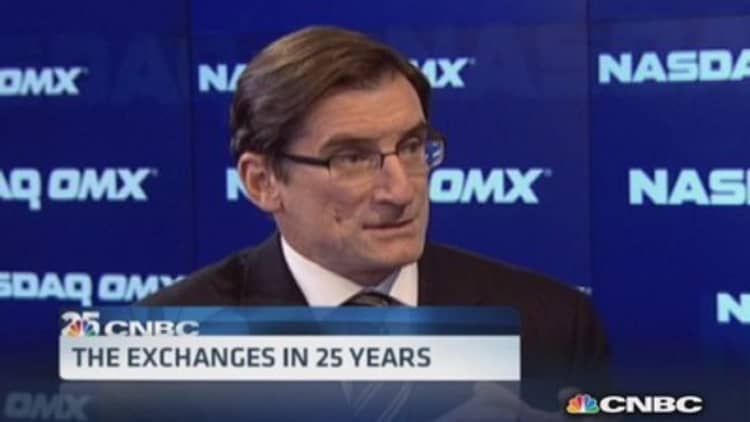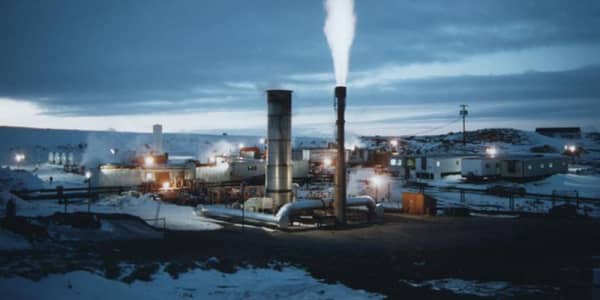At no other point in recent memory has speed in trading been more at the forefront of public discussion.
The entire financial services community can thank noted author Michael Lewis for that. His "Flash Boys" book highlights the world of high-frequency trading and sets out a story line that has put computer-driven trading strategies under an intensely scrutinizing microscope.
Speed has created a world of "haves" and "have-nots" in the investing world. Markets have always rewarded those who could get a first-mover advantage, and beat others to money-making opportunities: In ancient times, it was how many months or years it would take you to source and ship products on long trade routes. Today, it's about how many microseconds it takes for one buy order to beat another buy order to the same supply of stock.

If things continue on the same trajectory, speed could reach levels measured not just by microseconds, which are millionths of a second. Now, there's already talk of what can happen in picoseconds, or trillionths of a second.
Not everyone is convinced, however, that speed will be a definitive factor in how markets operate 25 years from now. Intercontinental Exchange Founder and CEO Jeff Sprecher said he fully understands the importance of speed, but thinks we are at a tipping point with regards to how fast markets can and will become.
Read More High-speed trading firms not sweating new regs
"The speed that we're dealing with today is so much faster than the blink of an eye that as you cut it into even smaller increments, it becomes beyond what a human can comprehend," Sprecher said. "I think at some point, it's not that important for us to make speed decisions that you and I can't comprehend, so I actually think we've reached, in a weird way, the limit of speed."
Speed may also become less of a factor simply because droves of market participants will have similar access to it, no matter how fast. BATS Global Markets President Bill O'Brien said he thinks speed will be less important because it will become commoditized.
"I feel like when the overwhelming majority of market participants have that capability, [speed] as a differentiator starts to go away as people focus on it less as a way of inventing a trading strategy that can make money for them reliably over time," O'Brien said.
Read MoreSEC chief wants to see changes in trading
Others argue that the focus shouldn't be on the absolute or even relative levels of speed. Nasdaq OMX CEO Bob Greifeld said the market is more concerned about reliability in the markets.
"What you have today is not so much speed being a factor, but the certainty of the speed," Greifeld explained. "The investing public, professional and retail, doesn't care for uneven results."
In other words, traders are putting a greater emphasis on how consistently and uniformly they can access levels of speed. That predictability is what high-frequency traders count on for their business and trading models to work.
Read More 'Flash Boys' subject says he gave people an easy out
"You need certainty and have to eliminate what we call the tails of performance," Greifeld said.
As markets evolve over the next 25 years, there's no doubt that things will continue to get faster, and more complex, but perhaps not as much as one might think. There may come a point where a certain level of fast is simply fast enough, and that time may not be too far off in the distance.
—By CNBC's Dominic Chu and Elizabeth Schulze






